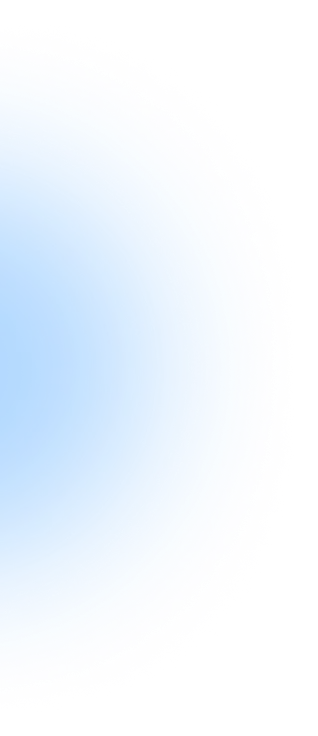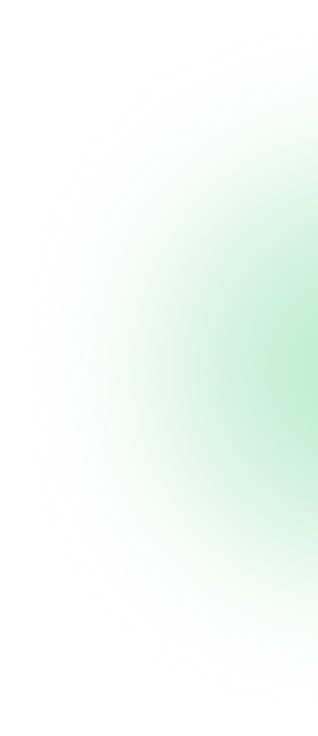-
Decentralized Infrastructure
dApps provide a decentralized infrastructure for the application to operate on. This decentralized infrastructure ensures that the dApp is not controlled by any single entity and is maintained or run by a decentralized network of computers.
-
Smart Contracts
dApps often use smart contracts, which are self-executing contracts where the agreement between buyer and seller is directly written into lines of code. Smart contracts enable dApps to automate certain processes and ensure that they are carried out transparently.
-
Consensus Mechanism
dApps is one of the blockchain technologies that use a consensus mechanism to ensure that the decentralized network of computers ensures transaction validity.
-
Decentralized Storage
dApps often use decentralized storage solutions, such as IPFS, to store data in a decentralized manner. Such activity ensures that the data is not controlled by a single entity and can be accessed by anyone.
Overall, dApps offer an alternative to traditional centralized applications, providing a decentralized way for users to interact with applications and services online.
So, this is how dApp Development works and ensures the smooth and secure development of decentralized applications using multiple platforms.
Dev Technosys offers expert dedicated developers under a flexible Time and Material model to turn your vision into powerful, scalable digital solutions
Blockchain and Cryptocurrencies, including dApp Development, DeFi development, and more, have taken today's world by storm. Well, there is no surprise that the blockchain market worldwide is expected to reach $69.04 billion by 2027.
In addition, the popularity of decentralized applications is rising at lightning speed, resulting in increased adoption of blockchain, rapid digitalization, and growth in several dApps development services.
The adoption of dApps can bring significant change and new interaction, ownership, and governance paradigms. Among all frameworks, Ethereum is the most widely used dApps framework, meaning there will be more demand for Ethereum dApps development than any other in the market. So, businesses must understand what dApp is and how businesses can leverage this trending technology to get the desired results.
This blog will act as a complete beginner's guide to dApp Development and highlight dApp pros, key features, functioning, and more. So, don't miss reading it!
What Is dApp Development?
dApp Development or decentralized app development creates decentralized business applications with a backend code running on the P2P network. The decentralized network combines intelligent contracts and the frontend user interface, which results in better output. Smart contract development is accessible and transparent on Ethereum, so it is essential to incorporate smart contracts when you build dApps.
A well-developed decentralized application incorporates frontend code and UI in any programming language to make calls to its backend. With the help of dApp Development services provider, businesses can experience zero downtime, complete privacy, and complete data integrity.
How Does dApp Works?
dApps or decentralized applications are built on decentralized networks, such as blockchain platforms. They rely on decentralized infrastructure, meaning that they do not have a central point of control or authority. Here dApp development company provides some essential points to how dApps work.
Top 5 Blockchain Platforms For dApps Development
Are you planning for dApps development? Couldn’t finalize which platform to use? Don’t panic! Here are the top 5 blockchain-based dApps platforms suggested by the dApp Development company professionals. Let’s discover each platform one by one.
dApps Development Platforms
| Platform | Total dApps | Daily Active Users |
|---|---|---|
| Ethereum | 2782 | 81.21k |
| Solana | 350 | 13.76k |
| Tron | 71 | 6.43k |
| Polygon | 484 | 4.12k |
| EOS | 328 | 37.6k |
-
Ethereum
Established in 2014, Ethereum is well-known as a public blockchain technology. It continues to be the top option for dApp developers. Soon after the Ethereum launch, it started gaining immense popularity. Credit goes to its speedy and less expensive transactions supported by smart contracts. As a result, the demand for Ethereum development company has raised significantly as more businesses are planning to build Ethereum dApps.
-
Solana
Solana was invented in 2017 and is considered a next-gen high-performance public blockchain platform. The unique feature of Solana blockchain development is that it utilizes its proof-of-history consensus for better verification of transactions on the network. Therefore, dedicated developers who work on the Solana platform need not excel at the Ethereum-based Solidity programming language.
-
TRON
Another popular public blockchain platform for dApp Development, i.e., TRON, is also stealing the lights. The platform supports programming languages like Java, C++, Python, and Go, enabling better digital content-sharing with security guarantees. So, business owners such as NFT marketplace development services providers can consider such platforms for creating decentralized applications.
-
Polygon
Previously, Polygon was known as the Matic Network and offered the best sidechain scaling solutions for Ethereum-compatible blockchains. Polygon blockchain platform seeks to provide scalability, interoperability, and higher efficiency. According to the dApps development services provider, businesses incorporating Polygon during dApp Development can expect a better and more efficient output in no time.
-
EOS
Launched in June 2018, Block.one, the firm that created the open-source software called EOS.IO utilized on the network, raised $4.1 billion in cryptocurrency through an ICO. EOS is a decentralized, blockchain-based platform that creates, hosts and operates business apps or dApps.
These are the top 5 popular blockchain platforms for dApps development. But, of course, you can pick any platform to build dApps and begin the process.
Why Are The Benefits of dApp Development For Businesses?
If you are new to the industry and wondering whether to invest in dApp Development, you should read this. There are several advantages dApps provides to businesses as compared to traditional centralized applications –
-
Zero Downtime
dApps are decentralized applications that run on a distributed network of computers rather than being controlled by a single entity. It makes dApps resistant to censorship, fraud, and Downtime.
-
Security
dApps use blockchain technology, which provides a secure and transparent ledger of transactions. It makes them more secure than traditional centralized applications, which are vulnerable to hacks and data breaches.
-
Trust
dApps are open source, meaning their code is publicly available and can be audited by anyone. Furthermore, it allows users to trust the dApp's operation, as the code is transparent and can't be altered without being detected. Such remarkable features and functionalities of decentralized applications ease the custom software development process.
-
Complete Data Integrity
dApps are designed to be immutable, meaning that once a transaction is recorded on the blockchain, it can't be altered or deleted. It ensures that the data in a dApp is accurate and can't be tampered with. Also, No malicious actions can be taken, like forging transactions, once they are made public.
-
Interoperability
Decentralized applications can interact with other dApps on the same blockchain. As a result, it enables businesses to easily share data and functionality. Such features make it easier to build complex applications and allow for greater interoperability between different systems.
-
Resistance to Censorship
None of the entities on the network can block users from making transactions, deploying apps, or reading data from the blockchain. So, while opting for dApp Development, businesses can remain ensured of ownership.
-
Accessibility
dApps can be accessed from anywhere with an internet connection, making them available to a global audience. It is particularly useful for applications that need to be used in areas with limited or unreliable internet access.
After referring to these seven benefits of dApps development, you might have understood the importance of integrating decentralized applications. Now that you are satisfied enough and planning to develop a dApp let’s take a look at its development process in detail.
What Is The Process of dApp Development?
The world of blockchain technologies is generating a vast amount of business opportunities. So, businesses who want better business transparency, improved business efficiency, and security can go for dApp Development.
Now, the question comes – ‘How to develop a dApp?’ As mentioned below, creating decentralized applications differs from other custom mobile app development processes.
-
Step 1 - Identify the Problem
Before initiating dApp Development, it is imperative to identify the problem or the use case for your future dApp. Firstly, start by outlining the difficulties you face and analyze whether your decentralized application can overcome those problems or not.
You won’t be able to develop a perfect business application unless you identify the problem well, so take enough time and look for the loopholes in the existing system that your application can overcome. Then, when you hire dedicated developers for the same, they’ll perform a similar step.
-
Step 2 - Create a Proof-of-Concept
The next step is to develop a Proof of Concept that will demonstrate the viability of your idea and validate it. All in all, it will enable you to test your dApp with few resources before investing a lot of time and money in its creation.
dApp development company is assist to consider this step of dApp Development carefully because it can show you which part of the application will require improvement and where there are problems.
-
Step 3 - Pick a DLT Platform
When you achieve success in POC, start the execution process of creating a successful decentralized application. Since there are several platforms available for dApp, determine which one will work best.
Always remember that every blockchain platform has its pros and cons, so spend enough time figuring out the best suitable platform that’ll suit your business requirements well.
If you find it difficult, consult the dApp Development company professionals. The type of platform you choose will decide the blockchain app development cost, so decide as per your business budget.
-
Step 4 - Begin dApp Development Process
Once you choose the best-suitable DLT platform, begin the process of dApp Development. The process will be quite different if we compare it with a custom software development process.
So, whether you are developing an application on your own or planning to hire Ethereum development company professionals, make sure to develop and test the application before launching. It will ensure application success in the long term.
-
Step 5 - Test & Launch Your dApp
Finally, when you are done with the dApp Development process, begin its testing and launching. Make sure you have the best team of quality analysts from dApps development company, or if you are seeking services from a reputed NFT marketplace development company or any other, test it properly. Always remember that it becomes costly to make the changes once the app is launched.
When you become assured of the testing, you can launch your decentralized application securely on the desired platform, i.e., Android or iOS.
Key Features of dApps You Can’t Miss
Now you know the process to build dApp for your business. What’s next? Key features? Besides knowing the development process, it is very crucial to know the major features to include while developing a decentralized platform.
-
MVP Consulting
There are times when businesses have the best idea for dApps, but they don't know how they will materialize the information to bring the best output. In that case, passing the idea to a team of dApp developers and deciding its feasibility can be the right move. It is where MVP consulting comes in handy as it helps to identify stakeholders and choose the best suitable dApp platform.
-
Open Source
dApps are often open source, meaning their source code is publicly available and can be freely modified and distributed by anyone. It allows for a greater level of collaboration and transparency in the development of the application.
-
Cryptocurrency
Many dApps use cryptocurrency or tokens as a form of payment or reward for participating in the network. It can be used to incentivize users to contribute resources, such as computing power or storage, to the network.
-
Smart Contracts
dApps often use smart contracts to automate the execution of certain actions or processes. Smart contracts are self-executing contracts with the terms of the agreement between buyer and seller being directly written into lines of code.
-
Cloud Services
dApps are also utilized as microservices and then externalized using APIs. It helps businesses focus on a single business service while offering cloud storage. This amazing key feature of decentralized applications enables businesses to save more space with less investment.
An application is nothing without the best features. So, to make your dApp stand out, including the abovementioned features. It will make your application worth competing. But, you need to remember one thing, i.e., the more features you’ll include, the higher its cost will be.
What Is the Cost of dApp Development?
The average cost of dApp Development is between $5,000 to $50,000, depending on the project's complexity. Still, multiple factors affect the cost of developing a decentralized application. Want to know what are those factors? Here you go!
-
Industry
The cost of dApps development is significantly influenced by the industry where the application will be used. It's mostly because each industry is distinct and calls for varying complexity.
Certain sectors have stringent compliance criteria that must be met. Some may also have a sizable number of concurrent users interacting with the dApp. So, your budget for dApp Development will vary depending on your business.
-
dApp Type
There are two ways dApps can incorporate blockchain during mobile app development. Either business can use their blockchain, like Bitcoin or incorporate the blockchain of another dApp, like Ethereum.
-
Data Privacy & Security
Data security and privacy are among the biggest challenges when hiring offshore developers. Although genuine service providers always take care of clients’ data privacy. But what happens if you hire an offshore team without any checks and they sell the data to the others. So, be careful about it, and ask for a Non-Disclosure Agreement(NDA) at the time of the final deal.
So, the blockchain app development cost will vary depending on these two protocols, and the type dApp developed.
-
Project Complexity
Different projects have different levels of complexity, which defines the actual cost of development. Now, you might be wondering how to decide the project's complexity. The blockchain platform, tech stack, API, features, functionalities, and other factors decide the project's complexity.
Every step of the dApp Development is crucial, so do not take anything for granted. The same process is applied whether you want to know the 'Cost to launch an ICO' or any blockchain-based project.
-
Features & Tech Stack
Every feature you include while developing a dApp will affect your budget. The more features, functionalities, and tech stack an application will contain, the higher its cost will be.
So, if you have a limited dApp budget, only include the basic features. The same applies to the latest blockchain technologies you will incorporate in your dApp. So, take care of this factor.
-
dApp Developer Location
Finally, coming to the last yet very important factor determining the cost of dApp Development, i.e., the dApp developer you will hire. The location of a mobile app developer is crucial in determining the cost, as different regions have different mobile app development costs. When you hire dApp developer for your project, consider your budget as well.
These are the 5 major factors affecting the cost of dApp Development. Now that you have an idea of the factors that can increase or decrease your budget, so be careful while planning the development of dApps.
The Future of dApp Development!
While dApp Development is a little challenging, it has significant scope in the future. Decentralized applications are in an all-time high demand and are about to reach the peak in 2023 and beyond.
As a result, future businesses will watch dApps playing a huge role in an individual's everyday life, whether it is about making transactions or performing any other activity.
So, businesses need to buckle up to achieve success in the coming time and move towards dApps development. For better assistance, hire dedicated developers or connect with a leading dApp Development company where experienced professionals work.
How Dev Technosys Can Help You With dApp Development?
Dev Technosys is a leading mobile app development and web development company with a team of 1000+ experienced professionals in multiple domains. Irrespective of the business size and domain, we serve impeccable assistance to businesses. So, you can seek dApp Development services from us without worrying about the business outcome and growth, as our experts will take care of it.
Still, wondering why I should hire dApp developers from Dev Technosys? Look at the amazing perks you can experience with our exceptional dApp Development assistance.
-
Experienced & Dedicated Developers
-
100% data security & privacy
-
Non-disclosure Agreement
-
High-quality Project Management
-
Modern-age Tech Stack
-
Maintenance & Support
-
Project Consultation
-
Post Release Support
For more details, get in touch with us today!
Frequently Asked Questions About dApp Development
-
What Are the Major Components of dApps?
dApps or decentralized applications have two major components, i.e., frontend and backend. Its front end enables smooth communication with the user, while the backend codes are smart contracts.
-
Why Is dApp Development Decentralized?
A decentralized app is not owned by a single entity, unlike a centralized one. Instead, it utilizes a blockchain ecosystem or peer-to-peer network. As a result, users can conduct transactions directly with one another. Users of decentralized applications must pay with cryptocurrencies to get the program's source code, which is a smart contract.
-
Which Programming Languages Are Used During dApps Development?
With the help of an dapps development company, you can choose the various blockchain languages, but some of the most popular programming languages used during dApp Development are Solidity, Powershell, C++, and JavaScript.
-
How do I Test a dApp?
Testing can be done in various popular resources or tools such as Truffle, Hardhat, and Ganache. It can scan for the outdated features or functions that need to be updated in their latest version.
-
How can I ensure the security of my dApp?
To ensure the security of the dApp, it includes many advanced testing process, code audits, robust security measurements and more. So, these can handle the security restrictions properly.

















